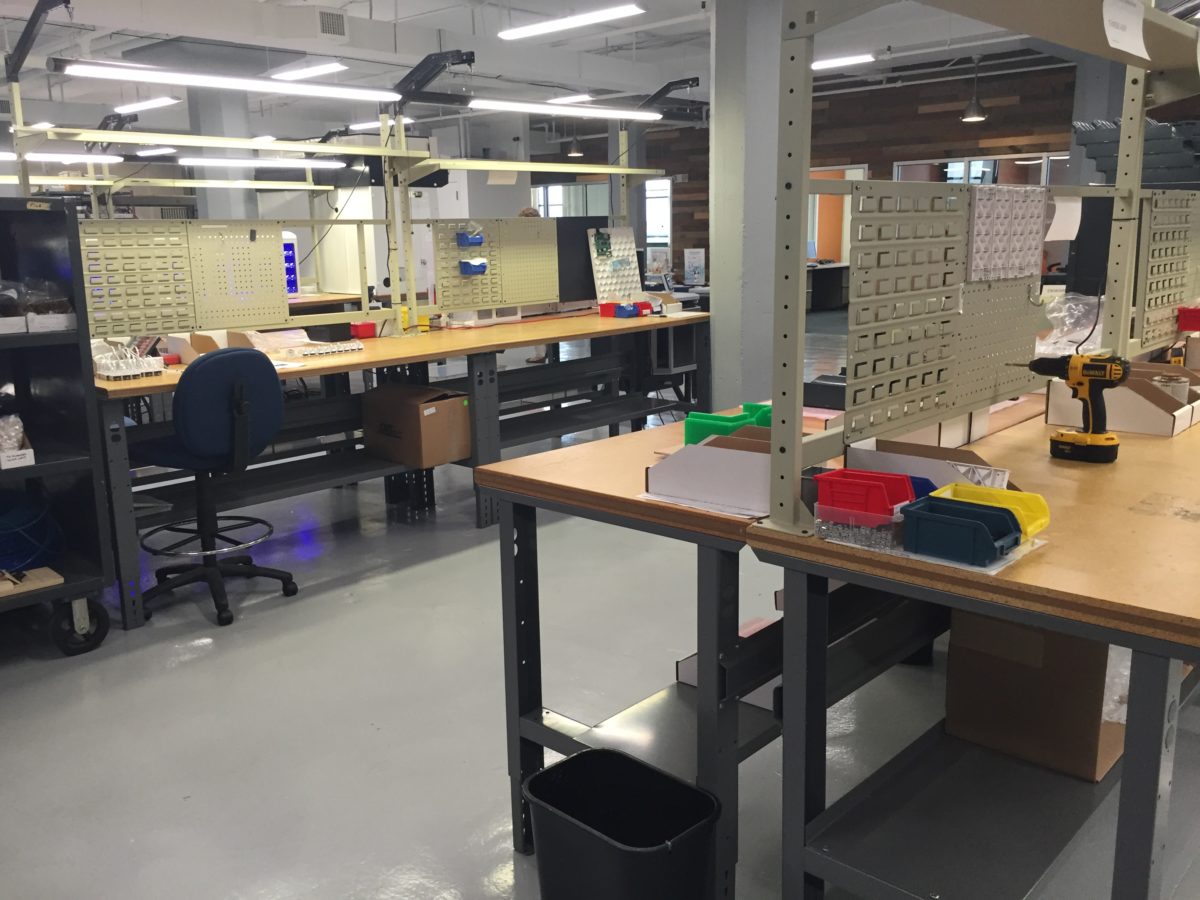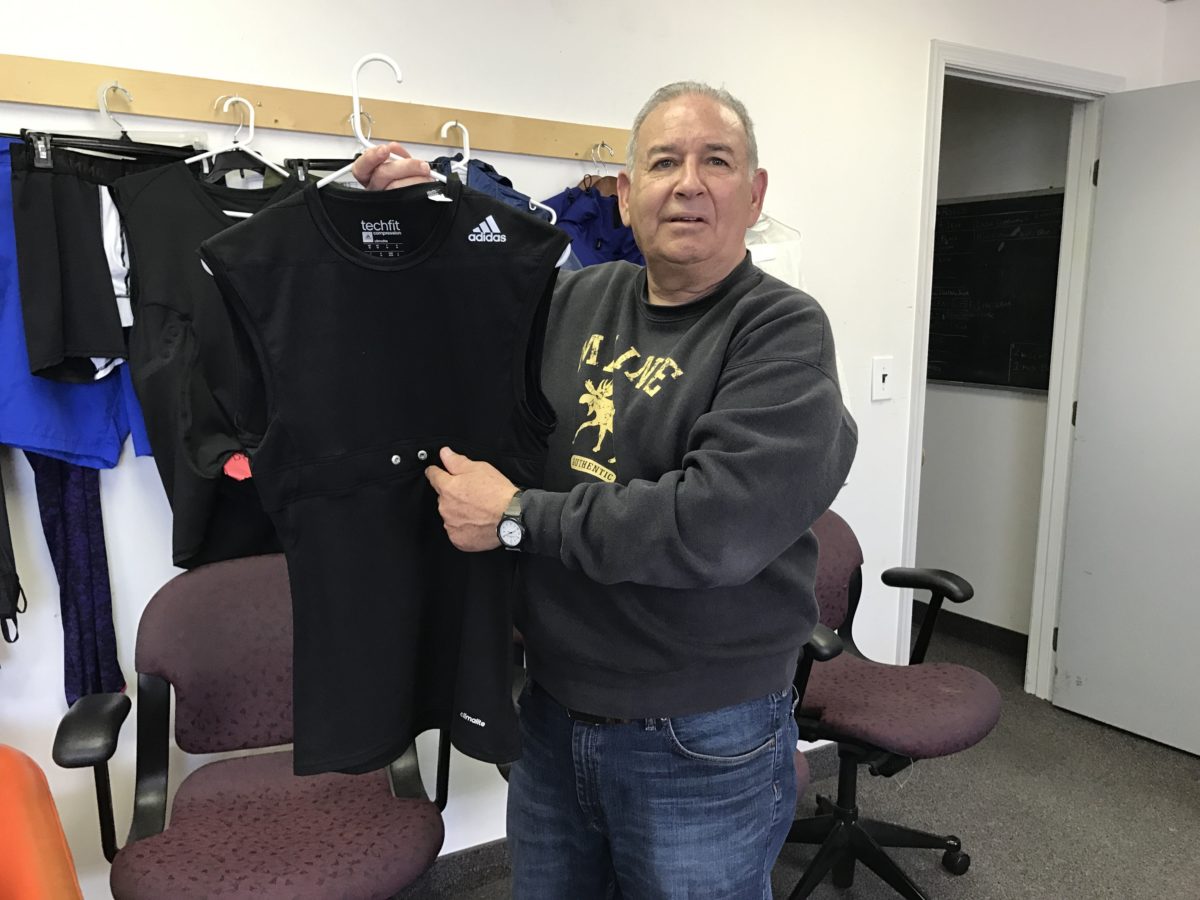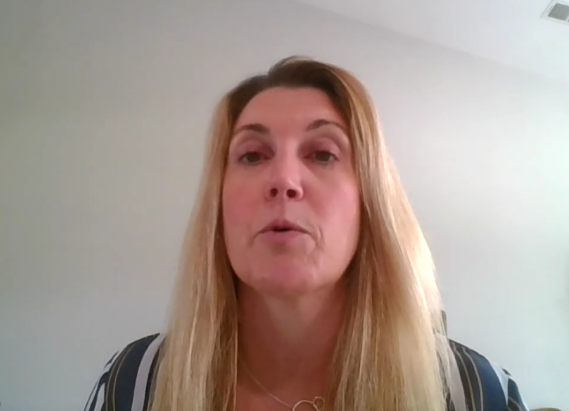When the COVID-19 pandemic arrived, businesses shifted operations to make needed healthcare products, and lent expertise to help others navigate a world where work was changed by social distancing.
For proof, look no further than the companies based at 1100 Wicomico. The Pigtown building has a long history as a business and product hub, and in recent years it has become home to entrepreneurs in the tech and innovation space.
In the pandemic, many of those businesses stepped up to make protective equipment for medical workers, while others shifted services toward an initiative that was responsive to the moment. While the 10 companies below didn’t initially coordinate resources, the cooperative spirit and variety that emerge reflect the community that’s being built inside the eight-story structure’s massive frame.
Here’s a look at some of the efforts:
Working together
Harbor Designs and Manufacturing has plenty of experience working alongside healthcare innovators bringing products to market as part of its custom design and manufacturing work. With distancing and other safety protocols in place, the team has been working with several companies based outside of the building. It doubles as a look at local companies making new products in response to the pandemic.
These include new inventions that sprung up in response to new healthcare needs, such as CareCove: Inventor and University of Maryland School of Medicine physician Dr. Steven Tropello previously worked with Harbor as a cofounder of Baltimore feeding tube placement device startup CoapTech, which just raised $7M in a Series B funding round. Dr. Tropello is now working to bring a device to protect medical staff during intubations to market.
Others are arising from a need for new telehealth tools. Harbor is working with Thesus Medical Products Group as it creates a remote patient monitoring device that can help to ensure patients take their medicine and records biometrics. Working toward commercialization in 2021, the device can help hospitals who are seeking to maintain contact with COVID-19 positive patients when they are in a home quarantine phase, said company president Geoff Brown.
The team at Baltimore-based LASARRUS Clinic and Research Center had been working with Harbor prior to the pandemic focused on a physical therapy use case. With the growth of telehealth, LASARRUS is working on the WearME device and software tools for in-home health assessment and diagnosing illness.
Another device that Harbor is working on, called Linshom, is designed to monitor respiratory conditions for patients who do not have a breathing tube inserted. “It not only provides extremely accurate monitoring of those patients, but allows it to be done without endangering the well being of the caretakers, as they can monitor respiration from a safe distance,” said cofounder Ronen Feldman.
For a project of its own, Harbor also received a COVID-19 Manufacturing grant from the State of Maryland to create a ventilator product.
Along with working on these new products, Harbor Designs and Manufacturing has looked to be a connecting point for resources from the local level like TEDCO up to the federal level like the Small Business Innovation Research program, said VP Strategic Partnerships & Market Development Marjie Cota.
It has also been a resource in the building itself.
When DiPole Materials spun up a new capability to make filters for N95 masks using its electrospinning technique, DiPole chairman Ken Malone turned to Harbor for some medical device knowhow, and DiPole also moved into space near Harbor Designs that allowed for more social distancing during its operations. It’s reflective of a spirit Cota has seen throughout.
“Our community in general pitched in and did what they needed to do to help people out,” Cota said.

Inside Harbor Designs and Manufacturing. (Photo by Stephen Babcock)
Companies within the building have also collaborated as they created new products. Danae Industrial 3D Printing, an additive manufacturing center which is based in the building, created reusable face masks called the Stopgap. Fittingly, they were designed to be used if no other N95 mask was available. Made using selective laser sintering technology, the nanofiber filter contained in each mask was developed by DiPole.
Moving quickly
Clothing manufacturer Fashions Unlimited has a long history of helping companies develop new kinds of products that use innovative approaches and respond to functional needs in unique environments. So it makes sense to find the team involved in the response: The company began producing reusable fabric face masks and gowns amid the need for PPE. One regular client, Baltimore’s Sassy Cyclist, reallocated fabric for women’s cycling jerseys to make masks. Fashions Unlimited was making 20,000 masks at its peak, said VP of Manufacturing Jill Silverman.
With the crisis presenting a need for materials right away, moving quickly was important. With other businesses closed, the company was able to add sewing machine operators to increase capacity. This product line also marked a change from the typical development process, as clients also came with patterns ready to go. Plus, Silverman said, “Production always becomes faster and more efficient as we do larger volumes, especially when the construction is fairly simple, so the more masks we made, the faster we were able to produce them.”
Fashions Unlimited’s expertise also proved influential. As DiPole Materials was making filters for masks, Malone said, the company helped to break down some of the details on how masks were constructed that helped them respond more quickly in the face of the urgent need at the outset of the pandemic.
“Without them it would’ve taken us a lot longer,” he said.

Fashions Unlimited founder Philip Spector. (Photo by Stephen Babcock)
Keeping workplaces safe
In March, Torres Consulting, LLC became one of the latest businesses to take space in the building. A luxury designer brand house prior to the pandemic, the business is focusing on development and production of personal protective equipment in the pandemic. Since moving into the building in March, the firm has ramped up to produce 4,000 masks weekly for uses in local healthcare settings by LifeBridge Health and distributed around the country to minority groups via local Urban League chapters. It also developed a medical gown, and took in an initial order of 15,000 via the Baltimore Development Corporation.
As the business continued to run, founder Paul Torres said a key has been safety amid the pandemic. To maintain compliance, the firm runs two shifts — 10 employees in one, and five in another. Temperature checks, masks, regular cleaning and machines set up six feet apart are all regular features.
Along with responding to the national need during the pandemic, Torres said he wants to contribute to growing domestic manufacturing, saying “Made in America is key.”
“Our U.S. supply chain must change,” he said. “The U.S. can never be in a position again as we are now depending on other countries for our PPE product. My company will be a part of this change.”
The pandemic has also put a new focus on keeping things clean. Sanitization services company Corporate Management Group already had a business including commercial sweeping, pressure washing and pavement marking services. With the pandemic, it has been working “around the clock” at active construction sites, public transit and essential offices, said CEO Tom Foster. The company also added an antimicrobial treatment that it says can kill COVID-19 for up to a month. Along with equipping staff, it has followed CDC and EPA guidelines for the chemicals and approaches it uses.
Cloud in the forecast
With the shift to remote work, managed IT services provider Klik Solutions is working with companies who are likewise making adjustments.
In the early days of the pandemic, the firm worked with companies as they got the right remote access technologies in place, said CEO Arthur Olshansky. Some clients used the time they weren’t in the office to upgrade IT and phone systems that weren’t being used. Others decided to move operations from in-house to the cloud, whether through platforms like Klik’s own Molnii, or Microsoft Azure. In one sense, Klik’s clients provide a snapshot of how we work now: Some companies have returned to the office, but many are moving into a more protracted period of remote work.
Sign of the times
In September, Image360 will be moving into the building, adding another Baltimore company that has been playing a role in pandemic response. The company typically makes graphics for tradeshows and events, among other offerings. In recent months, the sign and graphics company has been providing signage with operating instructions during the pandemic for colleges, schools, companies and spaces — including 1100 Wicomico. It has been doing so with wall graphics, floor graphics and wayfinding that can be customized. The company has also been applying acrylic shields, said CEO Mallory Davis.
Letting it shine
For the space’s consumer product companies, the pandemic brought a shift to online ordering. In July, soy candle manufacturer 228 Grant Street Candle Co. in the building was among those featured by New York Magazine’s The Strategist in a piece called “11 Great-Smelling Candles From Black-Owned Businesses.” Owner Kendal Grant told the Baltimore Business Journal that it led to interest from around the country, and business has grown 80% in the pandemic.
Giving space, giving back
During this time, 1100 Wicomico has also been home to a pair of nonprofits who had space donate for use.
To support local businesses and ship out of some of Baltimore’s beloved local goods, local entrepreneurial leaders founded the all-volunteer Bmore Baskets fundraiser. When the baskets are ordered online, the group purchases items directly from Baltimore small businesses at full price, and then assembled them to ship to the customers’ friends and family, said Pava LaPere, one of the leaders who spearheaded the effort, adding that it has led to thousands of dollars being put toward small businesses. Any profits are donated to CLLCTIVLY, the local org amplifying Black-owned businesses.
Each assembly included hundreds of items, LaPere said, which brought a loading dock strewn with baskets, paper shred, cellophane and all of the products.
“There is no way we would have been able to assemble in a socially distant manner without 1100 Wicomico letting us use their space — for free, nonetheless,” LaPere said.

Bmore Baskets volunteers at 1100 Wicomico. (Courtesy photo)
And finally, in another room in the building, youth are making face shields through a program spun up by local youth entrepreneurship nonprofit Dent Education during the pandemic. As Technical.ly reported, it’s among the local ventures that has received grants from the city to make PPE.
While youth make face shields at home, the room inside the building serves as a place to receive and distribute raw materials for the products, Patel said. After materials are dropped off and quarantined for three days, they are packed into supply kits that drivers take to the homes of students for contactless pickup. Once completed, the shields also return to the space, where they are checked for quality by a team that includes students.
“It’s perfect not only for the space itself, but because of the community of makers, innovators, and manufacturers. For example, we’ve already partnered with DiPole Materials to use their electrospun filters for face masks we are prototyping,” CEO Rajan Patel told us.
The effort has now made over 20,000 face shields, Patel said. Per an Instagram post, 10,000 recently went to the City of Baltimore’s emergency services department.
Join the conversation!
Find news, events, jobs and people who share your interests on Technical.ly's open community Slack

Baltimore daily roundup: An HBCU innovation champion's journey; Sen. Sanders visits Morgan State; Humane Ai review debate

Baltimore daily roundup: Medtech made in Baltimore; Sen. Sanders visits Morgan State; Humane Ai review debate

Baltimore daily roundup: The city's new esports lab; a conference in Wilmington; GBC reports $4B of economic activity


